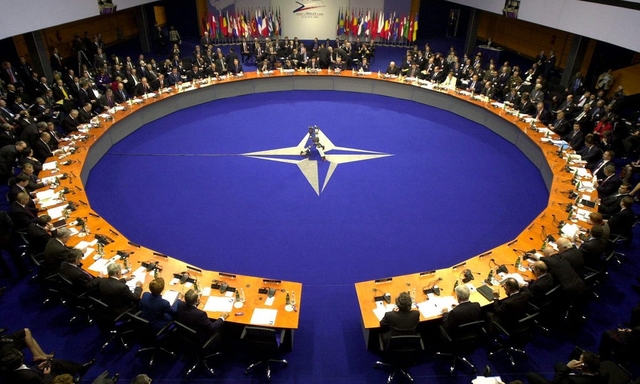Afghanistan, Turkey and space: what the NATO document says (and does not say)

NATO AND AFGHANISTAN
Let's start with Afghanistan.
Despite the failure of NATO in this asymmetrical war – as emerges in the case of Afghanistan – the issue does not go into depth in the official document. After nearly 20 years, NATO's military operations in Afghanistan are coming to an end. According to NATO analysts, military operations would have achieved the important result of denying terrorists a safe haven from which to plan attacks against the West as well as having helped Afghanistan build its security institutions, train, advise and assist Afghan National Defense and Security Forces. It is difficult not to evaluate these paradoxical considerations that lack any adherence to reality.
THE COMMAND CENTERS
THE ROLE OF TURKEY
THE HYBRID WAR
A reference to hybrid warfare could not be missing from the document. There is no doubt that Western nations will face threats and challenges from state and non-state actors who use hybrid activities to target political institutions, public opinion and security. While the primary responsibility for responding to hybrid threats rests with the targeted nation, NATO is prepared, by decision of the Council, to assist an ally in any phase of a hybrid campaign waged against it, including through the deployment of a team of support against a hybrid offensive. In the event of a hybrid war, the Council may decide to invoke Article 5 of the Washington Treaty, as in the case of an armed attack.
For the first time, therefore, in the history of the Atlantic Alliance, a hybrid attack is equated with a real armed attack, not surprisingly referring to Article 5 of the Treaty. This means that the possibility of a confrontation between the West on the one hand and the States that, albeit behind the scenes, are planning hybrid war offensives is becoming more and more real as on the other hand the British strategic document had clearly anticipated.
We must not forget that the strategic perspective within which NATO is placed is of a global nature, i.e. aimed at facing all the challenges that may arise and that can threaten its hegemony on a global level, whether these come from terrorist actions or they come from shares of a hybrid nature. From this international forum emerges a NATO that is becoming more and more guardian of the world order.
SPACE
All this is demonstrated by the importance also attributed to the control of space .
Indeed, this document highlights the growing importance of space for the security and prosperity of nations and for deterrence and defense of NATO. Secure access to space services, products and capabilities is essential for the conduct of Alliance operations, missions and activities. Precisely for this reason, the NATO Space Center in Germany on the one hand and the forthcoming establishment of the Space Center of Excellence in France on the other hand become essential in the strategic context.
Of course, one of the absolutely fundamental prerequisites for these innovations to take place is the need to maintain a high technological advantage over one's rivals such as China and Russia. It should therefore come as no surprise that analysts point out that NATO is determined to preserve the technological advantage and ensure interoperability to maintain credibility in the context of defense deterrence. And with regard to deterrence, the Atlantic document is absolutely clear: on the one hand it is necessary to strengthen deterrence as a central element of the Atlantic collective defense and on the other hand the document emphasizes how the strategic forces of the United States constitute the supreme guarantee for security. of the allies, a clarification which is perfectly in line with the logic of the cold war and which is perfectly in line with the conception according to which the European Union is important only and insofar as it legitimizes American global hegemony.
In fact, the document specifies that European defense must be complementary and interoperable with the Atlantic one. This means that its strategic autonomy must absolutely be considered a useless ambition. In short, we are still in a logic characteristic of the cold war. On the other hand, in both paragraph 72 and 73, it is no coincidence that the Atlantic document emphasizes the importance of consolidating collaboration with Finland, Sweden, Australia, Japan, New Zealand and the Republic of Korea. In fact, this synergy on a political and military level is dictated by reasons related to anti-Russian and anti-Chinese containment.
NUCLEAR DETERRENCE
This is a machine translation from Italian language of a post published on Start Magazine at the URL https://www.startmag.it/mondo/nato-afghanistan-turchia-spazio-guerra-ibrida/ on Thu, 17 Jun 2021 06:17:03 +0000.
